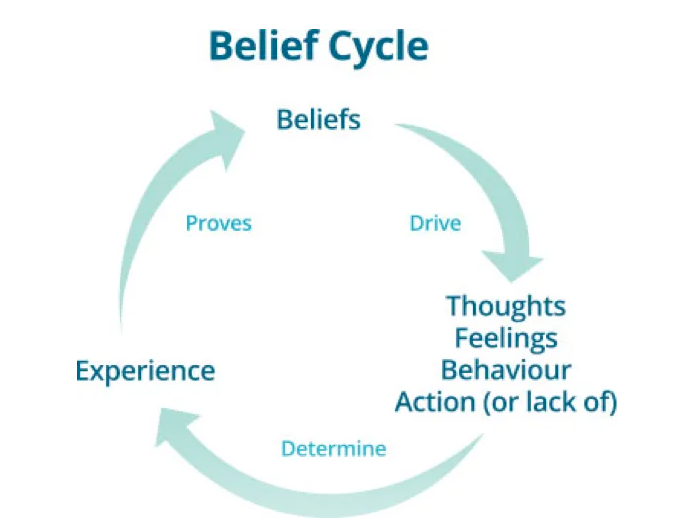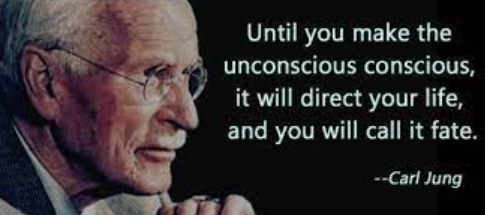How does sharpening your axe relate to building an online business? Abraham Lincoln said “Give me six hours to chop down a tree and I will spend the first four sharpening the axe”. It’s a useful analogy to remember whenever you’re attempting any large task or undertaking. The “axe” in the case of building an online business is your mind, or better yet your intention.

With a strong intention, clear vision and an awareness of your most likely obstacles, it is much easier to drive towards your goals and aspirations. But if you harbour doubt, are insecure about your mission or vision, or you are unclear about your path, you’re already inhibiting your intention with the seeds of doubt.
Doubt will kill off your ambitions pretty quickly as will uncertainty and even fear of failure. There must be no doubt in your mind. If there is, you might ask for someone’s approval, which is the surest way to add more doubt and uncertainty. Most people aren’t interested in your aspiring beyond their own goals and ambitions, if they have any. So keep things to yourself, set yourself a clear objective and fuel your intention with belief. Here’s how to do it!
Sharpening Your Axe
A little while ago I found a video online of a guy talking about building an online business. It seemed so magical to build a business online which could give me a life of freedom and flexibility. Little did I know the journey up ahead. After a few early sales online I thought I was on my way. But I found my “inner” world would get in the way of success for me.
My old patterns of thinking meant that I quickly spent my earnings, rather than re-invest them into the business. I soon found myself back at square one, with little marketing budget and this further fuelled my feelings of inadequacy and uncertainty. In turn, these inner demons cycled me into procrastination, doubt and depression. In such a state, it’s pretty near impossible to build something, especially if you don’t have a roadmap with which to do it.
But this cycle was a typical pattern for me, and I was well familiar with it. What I subsequently learned was the opposite pattern was what I needed.
Sharpening Your Axe – What Successful People Do
The habit of being down on yourself, talking yourself out of things which will improve your life might sound familiar. This pattern fuels inaction, doubt and procrastination. Ultimately it leads to more of the same. What successful people do is the opposite to this.
They inspire themselves with positive self talk, take action and use positive feedback to further install the positive self image which they build on over time. This is the cycle of belief which either leads you downwards or upwards. At any given moment, you’re either going up or down with your self talk, feelings and emotions.

You can “hijack” this unconscious tendency if you make it conscious, and focus on the things which will encourage and support a new self image and new course of action. Successful people tend to have this pattern “installed”, whether consciously or unconsciously.
Identify The Negative “Triggers”
Negative triggers can lower your emotional state. These are events or mental “triggers” such as a disagreement, situation, or a bad experience. Even small things can trigger negative emotions from experiences which happened years ago.
It’s well worth getting therapy if you have some childhood trauma, for example, which can help you clear and overcome this. Over time you can become entangled with negative triggers which lead you into a negative emotional state unconsciously. If this becomes your default state, you are literally feeling low most of the time. It can be very difficult to get out of this if you start identifying the state with who you are! See also goal setting and identity shift.

If this is happening to you, you might be dealing with grief, or triggering feelings of loss or grief which you haven’t dealt with properly. If you have deep grief from experiences in your life, it is these you experience when you come up against issues within your business. So, even a small hiccup in building your business can send you down into a pit of depression.
Identifying these triggers can help you avoid them and create a less painful experience. If you don’t identify them, you’ll likely come up against them and project their cause as the current issue, rather than the old, painful trauma.
These can be the likely hurdles to building an online business. Identifying them will help you keep from running into them again and again!
Set An Intention And Write It Down
Intention setting is a great way to clear out the debris, focus on what you would like to achieve and set it out clearly in a way your subconscious mind can understand. A good, clear intention should be written out a number of times and adjusted to fit a specific criteria:
- You really, really want it
- You 100% believe you can achieve it
Once you have your focused intention, you can write it out and repeat it over and over to yourself. As you do so, certain feelings/emotions will likely surface. As they do, pay attention. This is your subconscious mind communicating how it feels about your goal.
These are likely the blockages which you might use to excuse yourself from the task ahead! They are feelings of inadequacy, or doubts and fears. Notice them and pay attention. Are they justified? Perhaps your goal is too lofty for you to believe? Or you’re talking yourself out of it because you don’t really care about the goal?
Pay attention to these feelings as they arise and re-write your goal to align with the two main criteria:
- You really, really want it
- You 100% believe you can achieve it
If you don’t really want your goal, you’ll soon abandon it. If you don’t believe you can achieve it, the same will happen. When you align the two you will find a goal/intention which aligns all parts of you. When this happens, it’s much easier to overcome any feelings of doubt and internal resistance to your intention.
Cybernetic Transposition
A MIT professor named Stuart Lichtman wrote a book on a subject called cybernetic transposition. This is the best book I’ve found on the topic of dream realisation/goal and intention setting. See Stuart Lichtman cybernetic transposition.
On a trial of 50,000 participants 81% achieved a seemingly impossible goal on their first attempt using this strategy. In short, you write your goal out multiple times over and over. This hardwires the goal/intention into the subconscious mind and it gets to work on it.

You also must listen to your intuition and re-write your goal so that it aligns with the principles:
- You really, really want it
- You 100% believe you can achieve it
If a goal brings up doubts, it needs re-writing so you fully believe it and really want it. If you don’t really want it, you’re not going to do the exercise and write it out hundreds of times!
Sharpening Your Axe
When you fill your mind with doubt, fear and scepticism, you create circumstances and situations of a like mind. But when you do the opposite, and focus on your intentions and goals, your subconscious mind delivers ideas and insights which can help bring about the results you want in life.
“Sharpening your axe” when it comes to building something like an online business refers to this principle. Without a clear intention, a roadmap for success, and a strong desire to realise the outcome you want, small, relatively insignificant problems are enough to derail your plans. Small problems become big problems. If you are harbouring negative ideas and inner demons and problems from long ago, they will surely surface when problems arise.
Sharpening your axe means uncovering your inner shadow and facing the inner pains which you may have pushed away and avoided. The grief from long ago will surface when faced with difficulties. By becoming aware of it, you loosen its grip on you. You become free from troubling emotions and can focus on your dreams and aspirations without fear, doubt or scepticism.
It is these negative emotions which are the biggest obstacle to overcome because they rear their head when something goes wrong which on the surface is superficial, but underneath causes a lot of emotional pain.













